Looking for the ideal furry friend to share your apartment with? Well, did you know that Buggs, the delightful mix of Boston Terriers and Pugs, have gained popularity as the perfect apartment companions? With their compact size and charming features, Buggs not only adapt easily to apartment living but also possess a loving and affectionate nature that makes them an ideal family friend.
But that’s not all – there’s a fascinating aspect about Buggs that you won’t want to miss. So, if you’re curious to discover what makes Buggs the perfect apartment companion and affectionate family friend, keep reading to find out more.
Key Takeaways
- Buggs, a mix of Boston Terriers and Pugs, are an ideal choice for apartment living due to their adaptability and small size.
- Buggs are known for their affectionate and friendly nature, making them great family pets.
- Proper socialization and training are important for Buggs to prevent territorial behavior.
- Buggs require regular veterinary checkups, special attention to their respiratory health, and dental care for their overall well-being.
Bugg Mixed Breed Characteristics and History
Buggs, the adorable mixed breed of Boston Terriers and Pugs, have a fascinating history and distinctive characteristics.
Buggs were intentionally bred by designer breeders in the late 1980s, likely in North America. Breeders mixed Boston Terriers and Pugs to maximize the affectionate and easy-going traits of both parent breeds.
With a compact and muscular body, Buggs have a short, smooth coat and a distinctive pushed-in face with expressive eyes. They’ve gained popularity as a mixed breed. However, some Buggs end up in shelters or rescue groups, so adoption is recommended.
Buggs are known for their adaptability to apartment living and their all-around friendliness. They form strong bonds with their favorite human and are outgoing and friendly.
Buggs’ playful and goofy nature makes them a great companion for apartment dwellers.
Adaptability of Buggs in Apartment Living
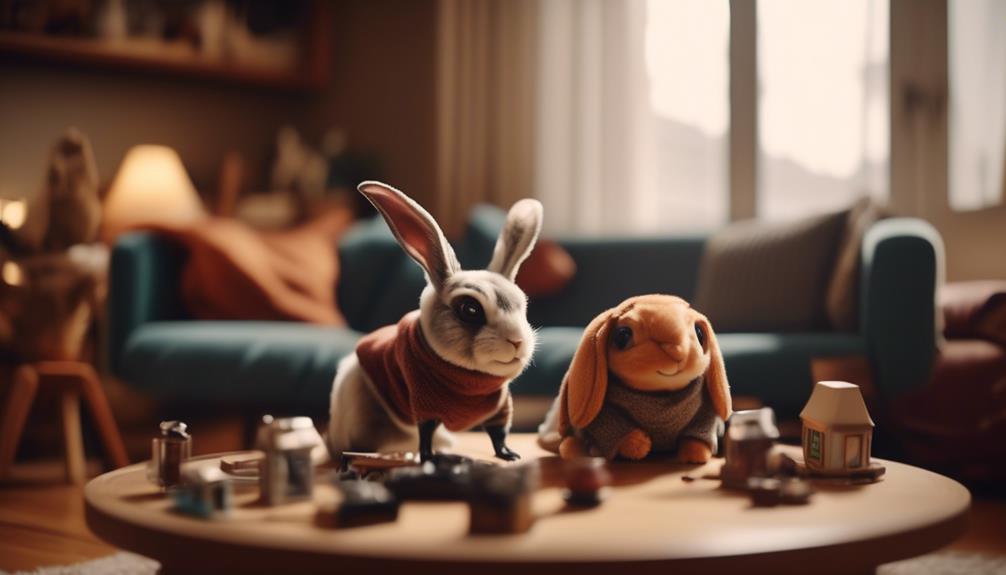
Living in an apartment? Discover how adaptable Buggs can be to apartment living.
Buggs, the mixed breed of Boston Terriers and Pugs, are known for their ability to adapt well to apartment living. Size isn’t the only factor to consider when choosing a dog for apartment living. Even though Buggs are small in size, it doesn’t mean they can’t thrive in apartments with lower activity levels.
These dogs have the potential to find contentment with indoor playtime or brisk walks. Their desirable qualities as apartment companions include being quiet, low-energy, and displaying polite behavior towards other residents.
When deciding on a dog for your apartment, remember to consider their energy levels, space requirements, and behavior in shared spaces. Buggs can be the perfect apartment companion, bringing joy and affection to your home.
Desirable Qualities for Apartment Dogs
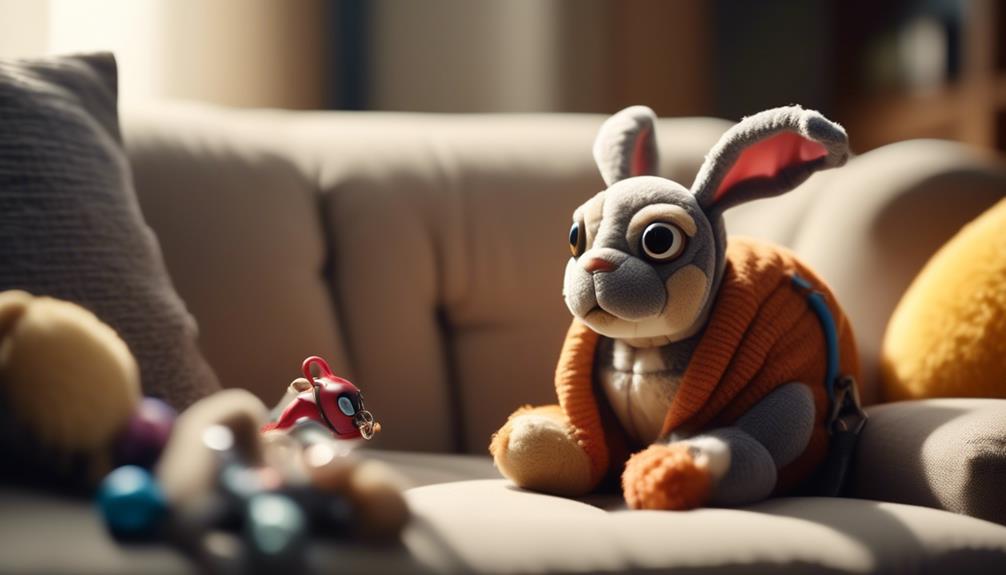
When choosing a dog for your apartment, it’s important to consider the desirable qualities that make for a great apartment companion.
One of the key qualities to look for is a dog that’s quiet and low-energy. Living in an apartment means close proximity to neighbors, so having a dog that doesn’t bark excessively or have a high activity level can help maintain a peaceful living environment.
Polite behavior towards other residents is also important. You want a dog that’s well-behaved and respectful when encountering other people or animals in shared spaces like hallways or elevators.
Additionally, it’s important to consider the size of the dog and their space requirements. While small dogs are often a popular choice for apartments, larger breeds that have lower energy levels can also adapt well to apartment living.
All-around Friendliness of Buggs
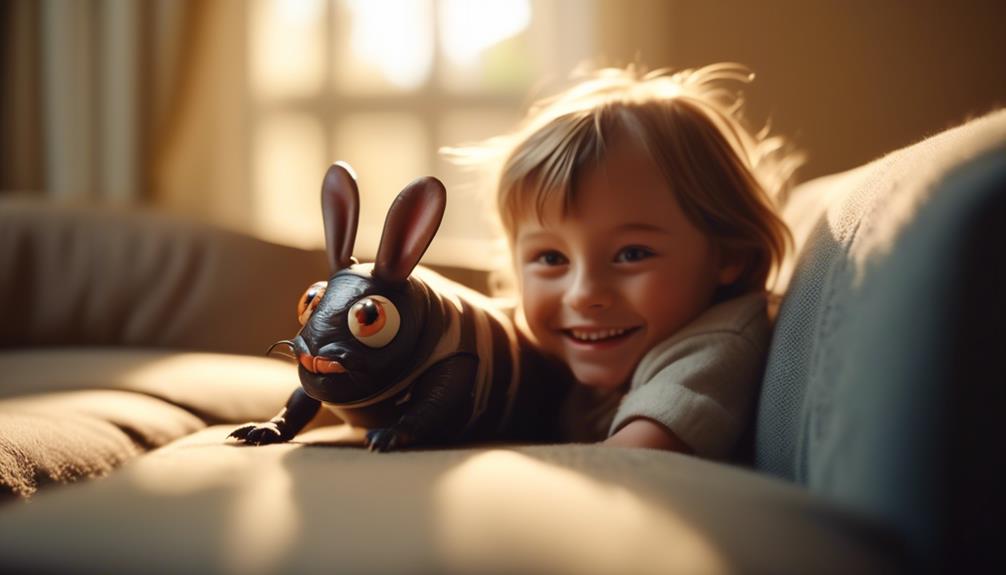
Buggs are known for their warm and welcoming nature, making them a delightful addition to any household. These mixed breed dogs are all-around friendly and affectionate, forming strong bonds with their favorite humans. They’re outgoing and playful, always ready for a quick play session.
Buggs have a remarkable ability to sense their owners’ emotions and offer comfort and support. Affection is often demonstrated through behaviors like tail-wagging greetings and cuddling. While not all dogs of the same breed will be equally affectionate, meeting and interacting with a Bugg is the best way to know their true nature.
With their friendly and loving personalities, Buggs are sure to bring joy and warmth to your home.
Affectionate Nature of Buggs
Buggs’ affectionate nature shines through in their warm greetings and cuddles, making them a joy to have as companions. They are known for their unconditional love and loyalty, enriching the lives of their owners. Buggs display their affection through behaviors like tail-wagging greetings and cuddling, showing their genuine love and care. They have a remarkable ability to sense their owners’ emotions and offer comfort and support when needed. Buggs are outgoing and friendly, forming strong bonds with their favorite human. To emphasize their affectionate nature, here is a comparison table:
| Affectionate Behaviors | Description |
|---|---|
| Tail-wagging greetings | Buggs express their excitement and happiness by wagging their tails vigorously upon seeing their loved ones. |
| Cuddling | Buggs love to snuggle up close to their owners, providing warmth and comfort while showing their affection. |
| Licking | Buggs may lick their owners as a sign of affection, showing their love and bonding. |
| Leaning against you | Buggs often lean against their owners, seeking physical contact and reassurance. |
With their affectionate nature, Buggs make excellent companions and loving members of the family.
Bugg Size and Personality

With a weight ranging between ten and 25 pounds and a height between 14 to 18 inches from the shoulder, Buggs are a smaller mixed breed known for their outgoing and friendly personality. These adorable dogs form strong bonds with their favorite human and are always ready for a quick play session.
Buggs have a playful and goofy nature that brings joy to any household. However, it’s important to properly socialize and train them to prevent territorial behavior. Buggs can experience separation anxiety and thrive best in households where someone is home most of the time.
Their smaller size makes them a perfect companion for apartment living, but they still require daily exercise and mental stimulation to stay happy and healthy.
Outgoing and Friendly Buggs
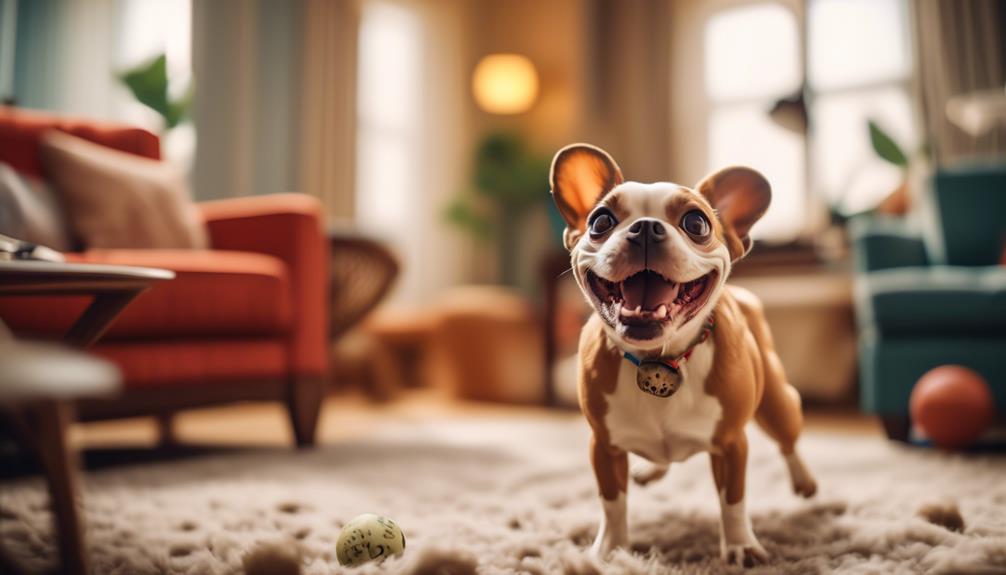
To continue our discussion, let’s now explore the outgoing and friendly nature of these adorable mixed breed dogs.
Buggs are known for their sociable and friendly personalities, making them the perfect companions for individuals and families alike. Here are four key characteristics that highlight their outgoing nature:
- Buggs form strong bonds with their favorite human, showing unwavering loyalty and affection.
- They’re playful and goofy, always ready for a quick play session and bringing joy to everyone around them.
- Buggs have a remarkable ability to sense their owners’ emotions and offer comfort and support when needed.
- They’re sociable and get along well with other pets and people, making them a great addition to any social setting.
With their outgoing and friendly nature, Buggs are sure to bring happiness and warmth to any home they become a part of.
Playful and Goofy Nature of Buggs
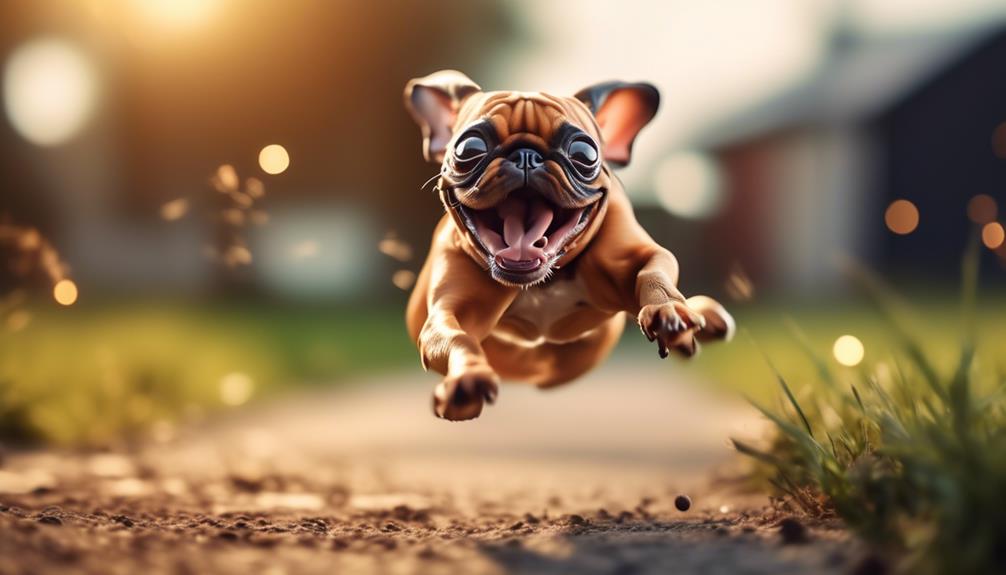
Get ready to experience the playful and goofy side of Buggs, as they bring endless laughter and entertainment into your life. Buggs are known for their fun-loving nature and their ability to turn any mundane activity into a hilarious adventure. Whether it’s chasing their own tail, performing silly tricks, or engaging in a game of fetch, Buggs always find a way to keep you entertained. Their energetic and lively personality will fill your home with joy and laughter. To give you a better idea of their playful nature, here’s a table showcasing some of the goofy behaviors that Buggs are known for:
| Playful and Goofy Behaviors of Buggs |
|---|
| Chasing their own tail |
| Doing zoomies around the house |
| Making funny faces |
| Playing hide-and-seek |
| Engaging in playful wrestling matches |
Buggs and Separation Anxiety
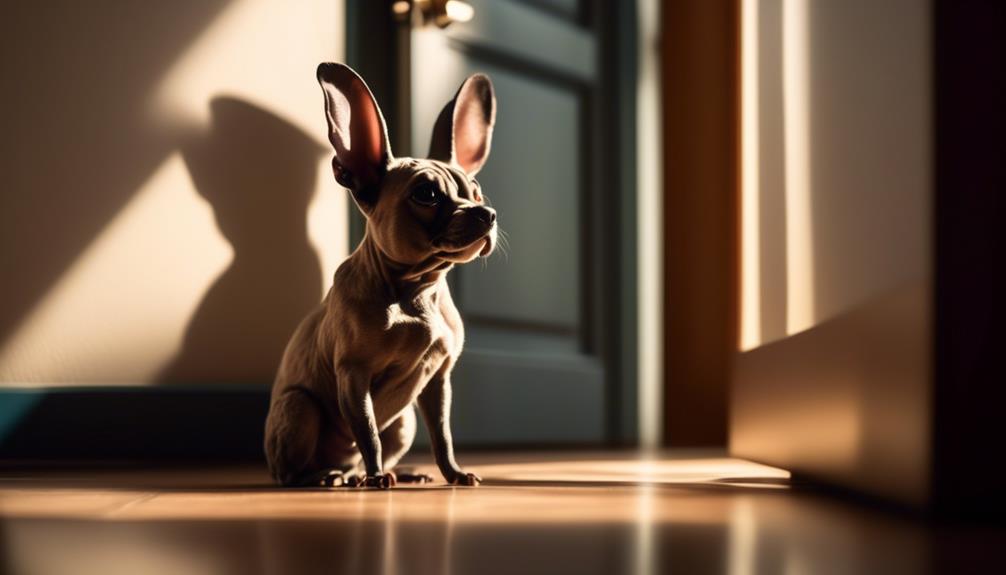
As you continue to learn about the delightful and playful nature of Buggs, it’s important to address the topic of separation anxiety in these charming mixed breed dogs.
Buggs, like many other breeds, can experience separation anxiety when left alone for extended periods.
Here are some key points to consider:
- Buggs form strong bonds with their favorite human and thrive on companionship.
- They can become anxious and distressed when separated from their owners.
- Separation anxiety in Buggs may manifest through behaviors such as excessive barking, destructive chewing, or soiling in the house.
- Proper training, socialization, and gradually increasing alone time can help alleviate separation anxiety in Buggs.
Understanding and addressing separation anxiety is crucial for ensuring the well-being and happiness of your Bugg companion.
Common Health Problems in Buggs

Buggs, like many other dog breeds, can be prone to certain health problems that are commonly faced by Boston Terriers and Pugs. One common health issue in Buggs is brachycephalic syndrome, which can cause breathing difficulties due to their flat faces.
Eye problems, such as corneal ulcers and dry eye, are also common in this breed. Additionally, Buggs may experience patellar luxation, a condition where the kneecap slips out of place, causing discomfort and limping.
It’s important to schedule regular veterinary checkups for your Bugg to catch any health problems early. Proper care, including daily exercise, teeth brushing, and ear cleaning, can help maintain their overall health.
Regular Veterinary Checkups for Buggs
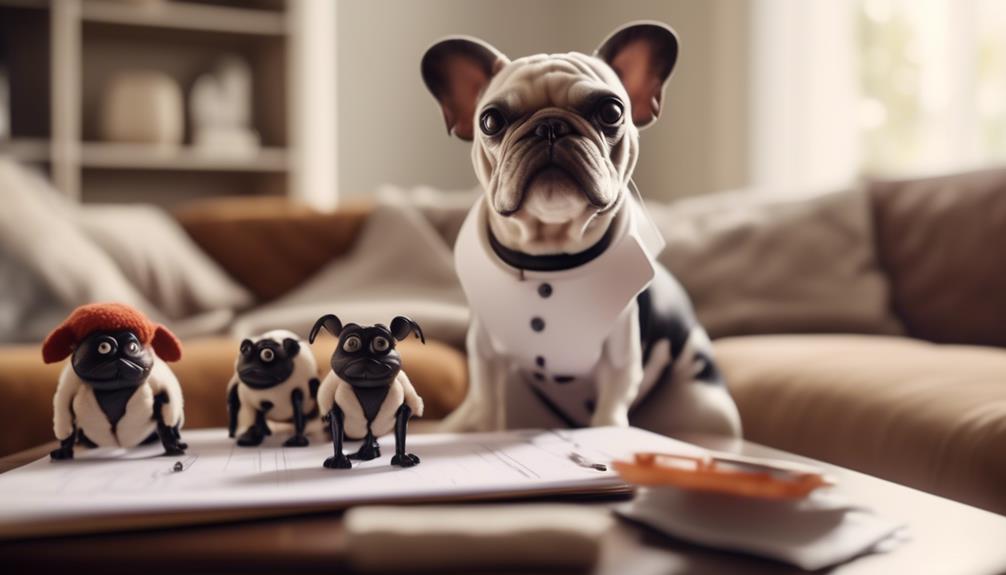
To ensure the overall health and well-being of your Bugg, it’s important to prioritize regular veterinary checkups. Here are four reasons why regular checkups are essential for your Bugg’s health:
- Early detection of health issues: Regular checkups allow the veterinarian to identify any potential health problems early on, which can lead to more effective treatment and management.
- Preventive care: Veterinarians can provide necessary vaccinations, parasite prevention, and dental cleanings during checkups, helping to prevent common health issues in Buggs.
- Monitoring growth and development: Regular checkups allow the veterinarian to monitor your Bugg’s growth and development, ensuring they’re reaching milestones and maintaining a healthy weight.
- Advice and guidance: Veterinarians can provide valuable advice and guidance on nutrition, exercise, and overall care for your Bugg, helping you provide the best possible care for your furry companion.
Respiratory Health of Buggs
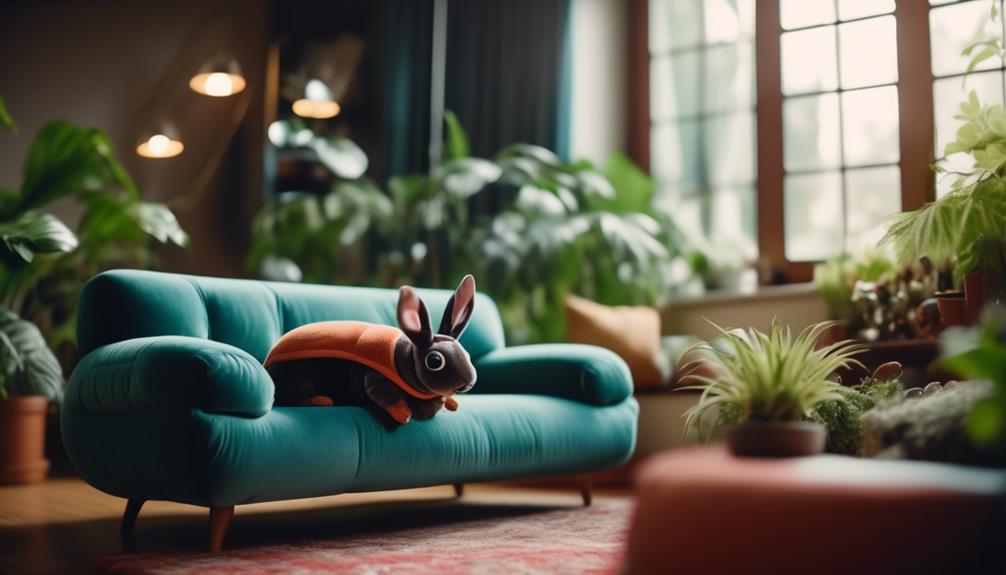
Regular veterinary checkups are essential for maintaining the respiratory health of your Bugg. Due to their brachycephalic features, Buggs may be more prone to respiratory issues. It’s important to monitor their respiratory health and address any concerns with your veterinarian. Here are some common respiratory conditions that Buggs may experience:
| Condition | Symptoms | Treatment |
|---|---|---|
| Brachycephalic Syndrome | Difficulty breathing, snoring, snorting | Weight management, surgery if necessary |
| Tracheal Collapse | Coughing, wheezing, exercise intolerance | Medication, weight management |
| Upper Respiratory Infections | Sneezing, coughing, nasal discharge | Antibiotics, rest, supportive care |
Dental Care for Buggs
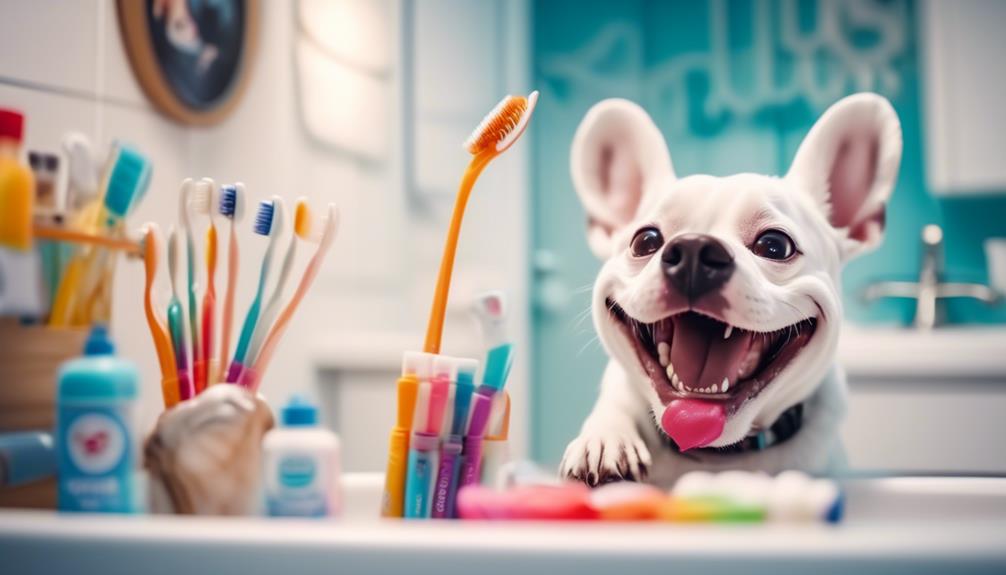
Taking care of your Bugg’s dental health is essential for their overall well-being. Here are four important things to keep in mind when it comes to dental care for your Bugg:
- Regular brushing: Just like humans, Buggs need their teeth brushed regularly to remove plaque and prevent dental issues. Use a dog toothbrush and toothpaste specifically designed for dogs.
- Dental chews and toys: Providing your Bugg with dental chews or toys can help keep their teeth clean and promote healthy gums. Look for products that are specially made to support dental health.
- Professional cleanings: Schedule regular dental cleanings with your veterinarian. Professional cleanings can help remove tartar buildup and identify any potential dental problems early on.
- Watch for signs of dental issues: Keep an eye out for signs of dental problems such as bad breath, excessive drooling, difficulty eating, or swollen gums. If you notice any of these signs, consult your veterinarian for further evaluation and treatment.
Daily Exercise for Buggs
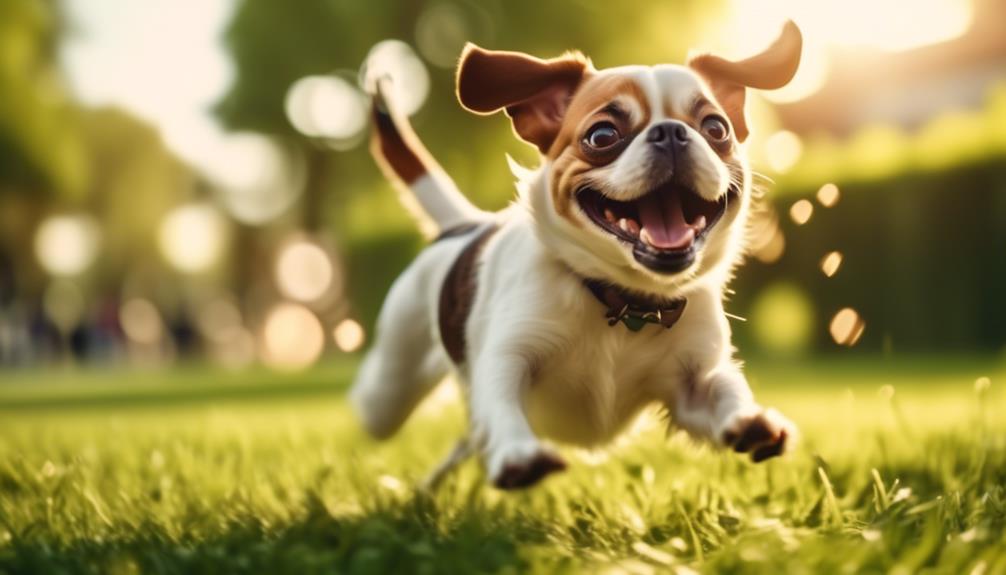
Keeping your Bugg active on a daily basis is essential for their overall health and well-being. Buggs have energy to burn and need regular exercise to prevent boredom and maintain a healthy weight. Here is a table to help you understand the exercise needs of your Bugg:
| Exercise Activity | Frequency | Duration | Benefits |
|---|---|---|---|
| Brisk Walks | Daily | 30 minutes | Cardiovascular health, mental stimulation |
| Indoor Playtime | Daily | 15-20 minutes | Bonding, mental and physical stimulation |
| Interactive Toys | Daily | 10-15 minutes | Mental stimulation, problem-solving |
| Off-Leash Play | 2-3 times a week | 20-30 minutes | Socialization, physical exercise |
Grooming Recommendations for Buggs
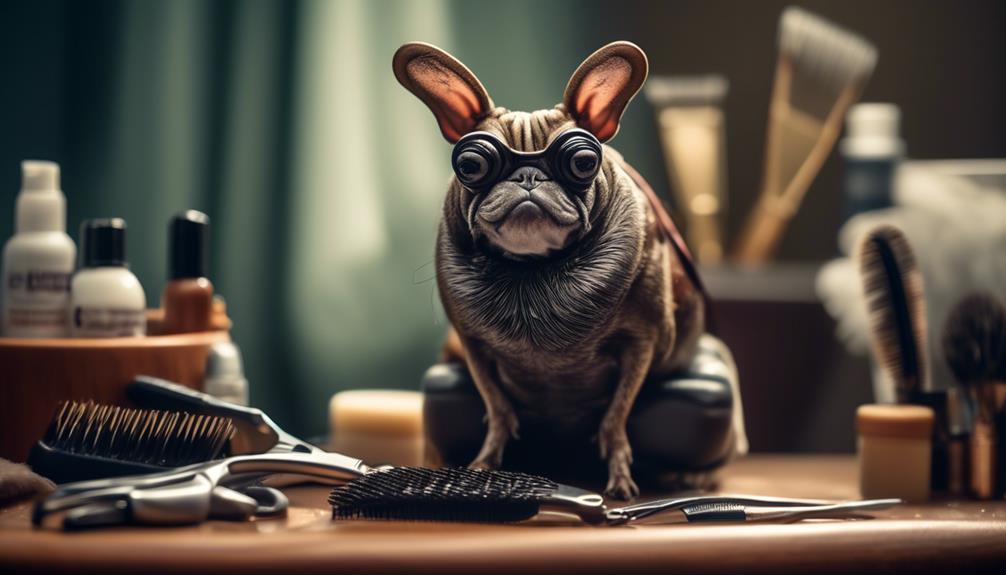
To keep your Bugg looking their best, it’s important to establish a regular grooming routine. Here are some grooming recommendations for your Bugg:
- Brush their coat regularly to remove loose hair and prevent matting.
- Clean their ears weekly to prevent infections. Use a gentle ear cleaner and cotton balls.
- Trim their nails regularly to maintain proper foot health. Be careful not to cut too close to the quick.
- Bathe your Bugg as needed, using a mild dog shampoo. Be sure to dry them thoroughly to prevent skin issues.
Frequently Asked Questions
Are Buggs Hypoallergenic?
No, Buggs are not hypoallergenic. They have a short, smooth coat that sheds moderately. If you have allergies, it’s important to consider this before bringing a Bugg into your home.
How Long Do Buggs Typically Live?
Buggs typically live between 10 to 13 years. Factors like genetics, diet, and overall care can influence their lifespan. Regular vet checkups and a healthy lifestyle can help ensure your Bugg has a long and happy life.
Are Buggs Good With Children?
Buggs are generally good with children as they are known for being friendly and affectionate. However, it’s important to supervise interactions to ensure both the child and the dog are comfortable and safe.
Do Buggs Require a Lot of Exercise?
Buggs don’t require a lot of exercise, making them perfect for apartment living. With their playful and goofy nature, they’ll still enjoy quick play sessions. Remember, though, every dog is unique, so it’s best to meet one to understand their needs fully.
Can Buggs Be Left Alone for Long Periods of Time?
Yes, Buggs may experience separation anxiety and are best suited for households where someone is home most of the time. They thrive on companionship and may not do well if left alone for long periods.
Are Buggs and BoShih breeds suitable for apartment living and as family pets?
Yes, Buggs and BoShih breeds are perfect for apartment living and as family pets. Their small size and inquisitive nature make them a great choice for those living in limited spaces. These playful and affectionate dogs make the perfect inquisitive BoShih apartment companions for any family.
Conclusion
So, if you’re ready to invite a furry friend into your apartment, look no further than the lovable Buggs.
Did you know that studies have shown that owning a pet can significantly reduce stress and improve overall well-being?
With their affectionate nature and remarkable ability to offer comfort, Buggs make the perfect companions for those looking for emotional support.
So why wait? Bring home a Bugg today and experience the joy and love they can bring to your life.




